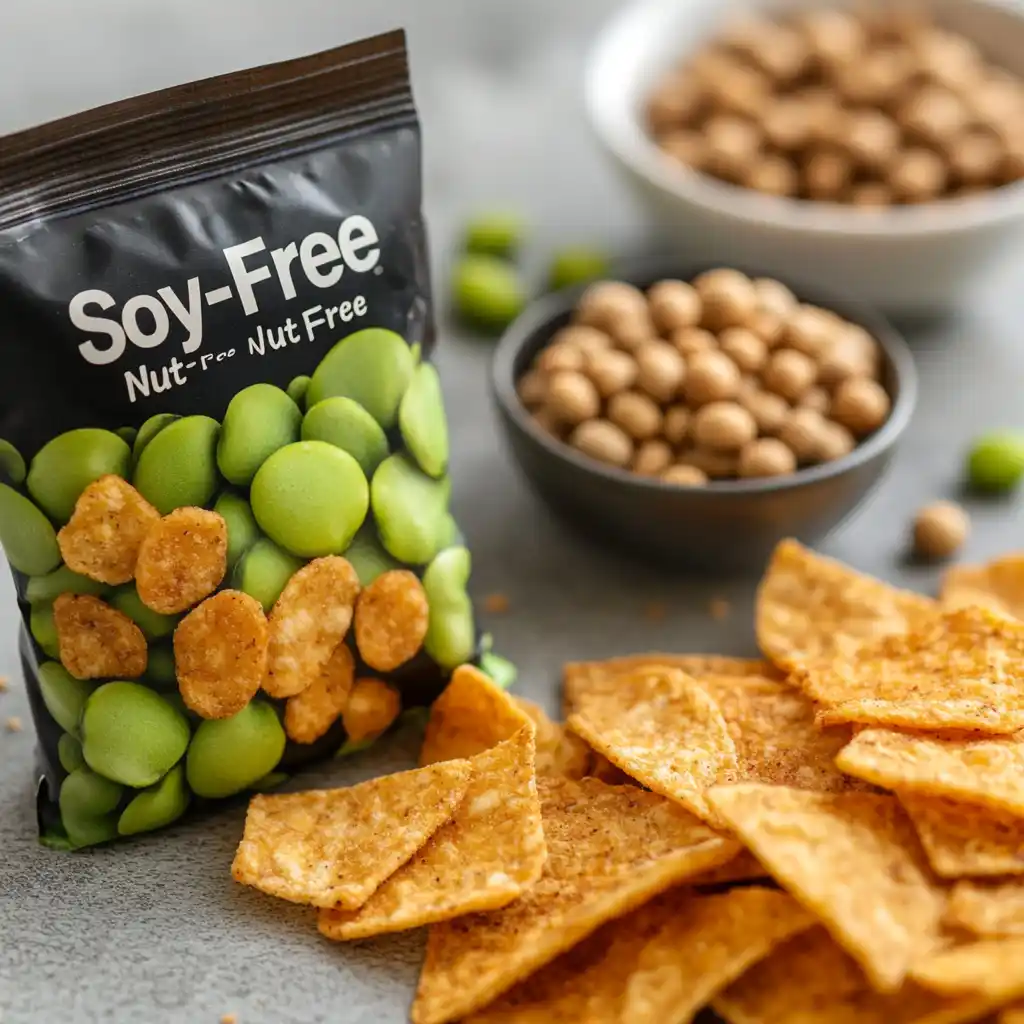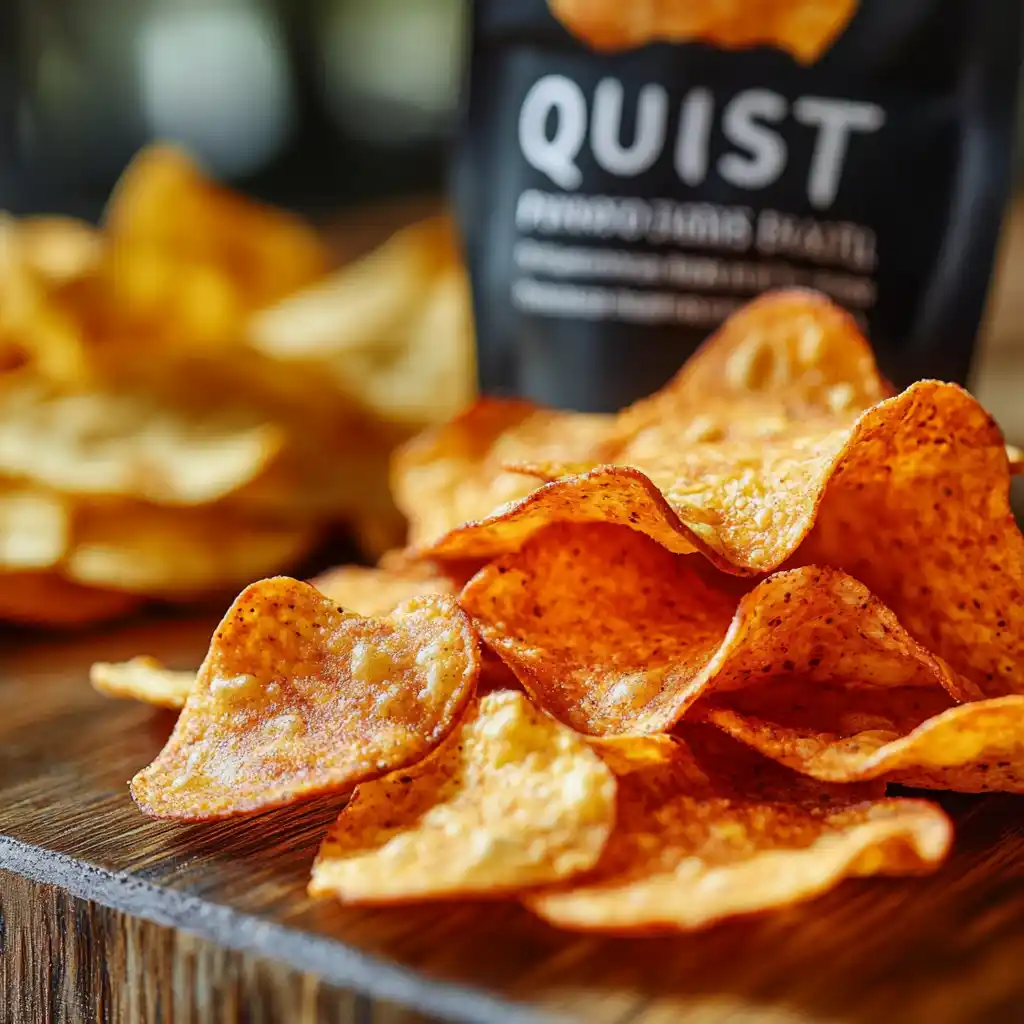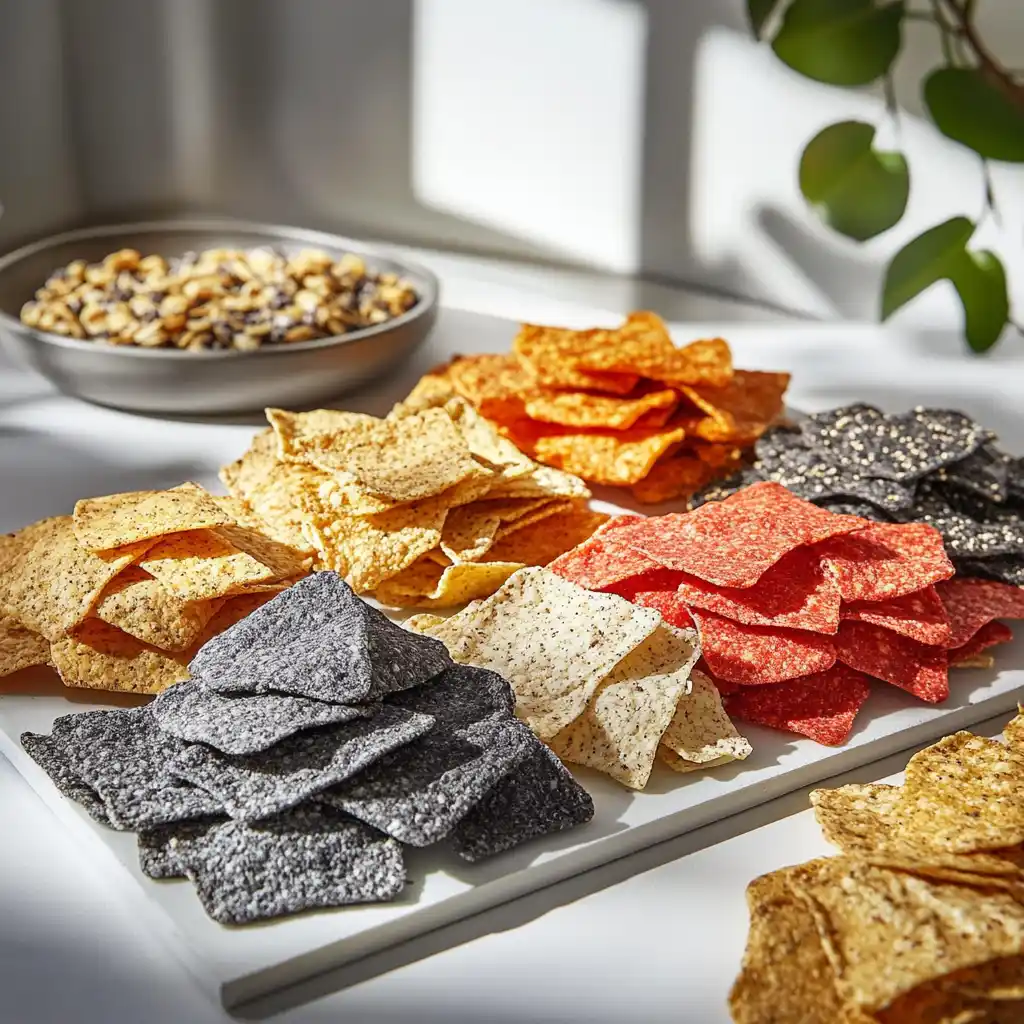Are Quest Protein Chips Good for You? In recent years, Quest Protein Chips have become a popular choice among fitness enthusiasts, dieters, and snack lovers seeking healthier options. Packed with protein and low in carbohydrates, these chips promise to deliver the crunch and flavor of traditional snacks while supporting health-conscious goals. But do they live up to the hype? Let’s explore their ingredients, benefits, and potential downsides to determine if Quest Protein Chips are as healthy as they claim to be.https://royalesrecipes.com/quest-protein-chips-a-complete-guide-to-nutrition-and-benefits/
Nutritional Profile of Quest Protein Chips
Quest Protein stand out for their impressive nutritional content, especially compared to regular chips. Let’s break down the key nutrients:
Key Nutrients in Quest Protein Chips
- Calories: ~140-150 per bag (varies slightly by flavor).
- Protein: 18-20 grams per serving, derived from milk protein isolate and whey protein isolate.
- Carbohydrates: 4-5 grams total, with only 1-2 grams of net carbs.
- Fat: 4-6 grams, depending on the flavor.
- Fiber: ~1 gram per serving.
- Sugar: 0 grams.
These chips are formulated to cater to those following high-protein, low-carb diets. The macronutrient balance makes them particularly appealing to individuals looking to manage weight, build muscle, or adhere to ketogenic eating patterns.
Comparison with Traditional Potato Chips
Here’s how Chips stack up against standard potato chips (based on a 1-ounce serving):
| Nutrient | Quest Protein Chips | Traditional Potato Chips |
|---|---|---|
| Calories | ~140-150 | ~160-170 |
| Protein (grams) | 18-20 | 2-3 |
| Carbohydrates (grams) | 4-5 | 15-17 |
| Fat (grams) | 4-6 | 10-12 |
| Fiber (grams) | ~1 | ~1 |
| Sugar (grams) | 0 | ~1 |
Benefits of Quest Protein Chips
High Protein Content for Muscle Repair
With up to 20 grams of protein per bag, Quest Protein Chips are an excellent choice for those looking to build or maintain muscle. Protein helps with muscle repair after workouts and promotes satiety, making these chips a satisfying snack option.
Low Carb and Keto-Friendly

Containing only 1-2 grams of net carbs, Quest Protein Chips are ideal for individuals following ketogenic or low-carb diets. This makes them a guilt-free treat for anyone aiming to keep their carb intake minimal.
Calorie-Controlled Snack
At around 140-150 calories per serving, these chips offer a satisfying snack without derailing calorie-controlled diets. Their protein content also helps prevent overeating by keeping you full longer.
Gluten-Free and Portable
One of the standout features of thses kind of Chips is that they are gluten-free, making them suitable for individuals with gluten sensitivities or celiac disease. Unlike many traditional chips that may contain gluten from seasonings or cross-contamination during production, Quest ensures that their product is safe for those who need to avoid gluten entirely. This opens up snacking possibilities for a group often limited in their choices.
Benefits of Being Gluten-Free:
- Safe for Gluten-Sensitive Individuals: For people with gluten intolerance or celiac disease, eating gluten-containing foods can cause digestive distress and other health issues. Quest Protein Chips eliminate this concern.
- Clear Labeling: The gluten-free certification on the packaging provides assurance, making it easy for consumers to identify them as safe to consume.
Convenient for On-the-Go Lifestyles:
In addition to being gluten-free, Chips come in single-serving bags, making them incredibly convenient. Whether you’re heading to work, traveling, or looking for a post-workout snack, their portability allows you to enjoy a protein-packed treat without any preparation.
Why Portability Matters:
- Portion Control: Each bag is pre-portioned, helping you stick to your dietary goals without the temptation to overeat.
- Easy Storage: The lightweight and compact packaging means they fit easily in gym bags, purses, or backpacks.
- Shelf-Stable: Unlike some perishable snacks, Quest Protein Chips have a longer shelf life, making them a reliable option for busy individuals who need a quick, hassle-free snack.
Practical Scenarios:
- Post-Workout Recovery: Toss a bag into your gym bag to refuel with protein after a workout.
- Office Snacks: Keep a stash at your desk to curb hunger between meals.
- Travel-Friendly: Perfect for road trips, flights, or long commutes, these chips are a mess-free, satisfying option.
Bottom Line: The gluten-free certification and portable packaging make Quest Protein Chips a versatile snack choice for those on the go, particularly for individuals who require gluten-free options. This combination of health-conscious formulation and convenience sets them apart in the snack food market.
Potential Drawbacks of Quest Protein Chips
Processed Ingredients and Artificial Flavors
While the protein isolates used in these chips are high quality, they are processed ingredients. Additionally, the flavoring may include artificial additives, which might not appeal to individuals who prioritize clean eating.
Low Fiber Content
While Quest Protein Chips boast an impressive protein-to-carb ratio, one area where they fall short is their fiber content. Each serving typically contains only about 1 gram of fiber, which is significantly lower than many whole-food snacks or fiber-rich options like nuts, seeds, or vegetables.
Why Fiber Matters
Fiber is an essential nutrient for overall health, playing a crucial role in various bodily functions:
- Digestive Health: Fiber promotes regular bowel movements and helps prevent constipation.
- Blood Sugar Regulation: It slows the absorption of sugar, helping to prevent spikes in blood sugar levels.
- Heart Health: Fiber can help lower cholesterol levels, reducing the risk of heart disease.
- Satiety and Weight Management: High-fiber foods are more filling, which can help control hunger and prevent overeating.
The Fiber Gap in Quest Protein Chips
The low fiber content in Quest Protein Chips is a downside for individuals looking to increase their fiber intake as part of a balanced diet. In comparison, whole foods like an apple (4 grams of fiber) or a handful of almonds (3.5 grams of fiber) offer significantly more fiber per serving.
How This Affects Health Goals:
- Weight Loss: While the high protein content in Quest Protein Chips promotes satiety, the lack of fiber may leave some people feeling less full compared to higher-fiber snacks.
- Digestive Support: People aiming to improve gut health or prevent digestive discomfort may need to pair these chips with a fiber-rich side, like raw vegetables or a small salad, to balance their meal.
- Keto Diets: Keto dieters often face challenges with low fiber intake due to the nature of the diet. Relying on Quest Protein Chips as a primary snack may exacerbate this fiber deficit.
Suggestions to Offset the Fiber Deficit
To make Quest Protein Chips a more balanced snack, consider pairing them with fiber-rich foods:
- Raw Vegetables: Pair a bag of Quest Protein Chips with celery, carrots, or cucumber slices to add crunch and fiber.
- Hummus or Guacamole: Dipping the chips in a small portion of hummus or guacamole can boost fiber intake while adding healthy fats.
- High-Fiber Drinks: Enjoy the chips alongside a smoothie made with chia seeds, flaxseeds, or spinach for a fiber-rich boost.
Bottom Line: While Quest Protein Chips excel in providing protein and keeping carbs low, their lack of fiber makes them less ideal for individuals focused on digestive health or balanced nutrition. By combining them with fiber-rich sides, you can enjoy their benefits without compromising on essential nutrients.
Digestive Concerns
Although Quest Protein Chips are marketed as a healthy snack option, some individuals may experience digestive discomfort when consuming them. This is primarily due to the protein isolates, sunflower oil, and low fiber content used in their formulation. While these ingredients are generally safe and well-tolerated, they may pose issues for certain people depending on their digestive sensitivity.
Common Ingredients That May Cause Digestive Issues
- Protein Isolates
Quest Protein Chips derive their high protein content from milk protein isolate and whey protein isolate. While these are excellent protein sources, they may cause problems for individuals who:- Are lactose intolerant, as small traces of lactose might still be present in these protein isolates.
- Have difficulty digesting concentrated protein supplements, leading to bloating or gas.
- Sunflower Oil
Sunflower oil is used in Quest Protein Chips for texture and flavor. However:- Some individuals may find it harder to digest due to its relatively high fat content.
- In large quantities, sunflower oil may contribute to an imbalance in omega-6 fatty acids, which, in excess, can promote inflammation in sensitive individuals.
- Low Fiber Content
As mentioned earlier, the low fiber content in Quest Protein Chips can exacerbate digestive issues, particularly for people who already struggle with irregular bowel movements. Fiber is essential for promoting gut motility and supporting a healthy microbiome. - Artificial Additives and Seasonings
The flavoring in Quest Protein Chips often includes artificial additives, spices, or sweeteners that can irritate sensitive stomachs. Ingredients like sucralose or certain seasoning blends may cause mild discomfort or upset stomachs for some consumers.
Symptoms to Watch Out For
If you’re sensitive to any of the ingredients, you might experience the following symptoms after consuming Quest Protein Chips:
- Bloating
- Gas
- Stomach cramps
- Diarrhea or constipation
- Heartburn (from certain seasonings or oils)
Who Is Most at Risk?
- Lactose Intolerant Individuals: Even though the chips are low in lactose, those with severe intolerance may still experience discomfort.
- People with IBS (Irritable Bowel Syndrome): Some ingredients, like artificial sweeteners or seasonings, can act as triggers for IBS symptoms.
- Low-Fiber Dieters: If your overall diet is already low in fiber, these chips may worsen digestion issues rather than help.
Tips to Minimize Digestive Discomfort
If you enjoy Quest Protein Chips but are concerned about their impact on your digestion, here are some practical solutions:
- Hydrate: Drink plenty of water to help your body process the protein isolates and other ingredients.
- Eat in Moderation: Avoid consuming multiple bags at once, as this can increase the likelihood of digestive discomfort. Stick to a single serving.
- Pair with Fiber-Rich Foods: Combine the chips with a fiber-rich side, like raw vegetables or a small portion of whole grains, to aid digestion.
- Opt for Variety: If you notice regular discomfort, consider alternating with other snacks that use whole, unprocessed ingredients.
Bottom Line: While Quest Protein Chips are a convenient and nutritious snack for many, they may cause digestive concerns in individuals sensitive to protein isolates, oils, or artificial additives. Moderation, hydration, and pairing them with fiber-rich foods can help reduce the risk of discomfort and ensure a more enjoyable snacking experience.
Cost Comparison with Other Snacks

Quest Protein Chips are pricier than regular chips, with a cost averaging $2.50-$3.50 per bag. This premium price may deter budget-conscious buyers.
Quest Protein Chips and Different Diets
Are They Good for Weight Loss?
Yes, Quest Protein Chips can support weight loss due to their low-calorie and high-protein content. Protein increases satiety, which can help reduce overall calorie intake.
Do They Support Muscle Gain?
Absolutely. With 20 grams of protein per serving, these chips are a great option for muscle repair and growth, especially as a post-workout snack.
Keto and Low-Carb Diets
These chips are designed with low-carb dieters in mind. Their minimal net carbs make them a perfect snack for anyone following a ketogenic or low-carb eating plan.
Clean Eating Considerations
If you prioritize minimally processed, whole-food snacks, Quest Protein Chips might not be the best choice. Their processed ingredients and artificial additives may conflict with clean eating principles.
FAQs
Are Quest Protein Chips Healthy for Kids?
While not harmful, the high protein content may be unnecessary for children unless recommended by a healthcare provider.
Can They Replace Meals?
No, these chips are best used as a snack. They lack the full range of nutrients needed for a balanced meal.https://www.shape.com/healthy-eating/healthy-recipes/snacks/protein-chips
Are They Vegan or Vegetarian?
Quest Protein Chips are not vegan as they contain milk-derived protein. However, they are suitable for vegetarians who consume dairy.
Do They Taste Good?
Taste is subjective, but many people find Quest Protein Chips flavorful, with bold seasonings like Nacho Cheese and Sour Cream & Onion.
Conclusion
So, The answer of question depends on your dietary needs and health goals. These chips are an excellent choice for those seeking a high-protein, low-carb snack that fits into weight loss, muscle gain, and ketogenic diets. However, their processed ingredients and low fiber content may not align with everyone’s preferences. As with any snack, they’re best enjoyed as part of a balanced diet.

